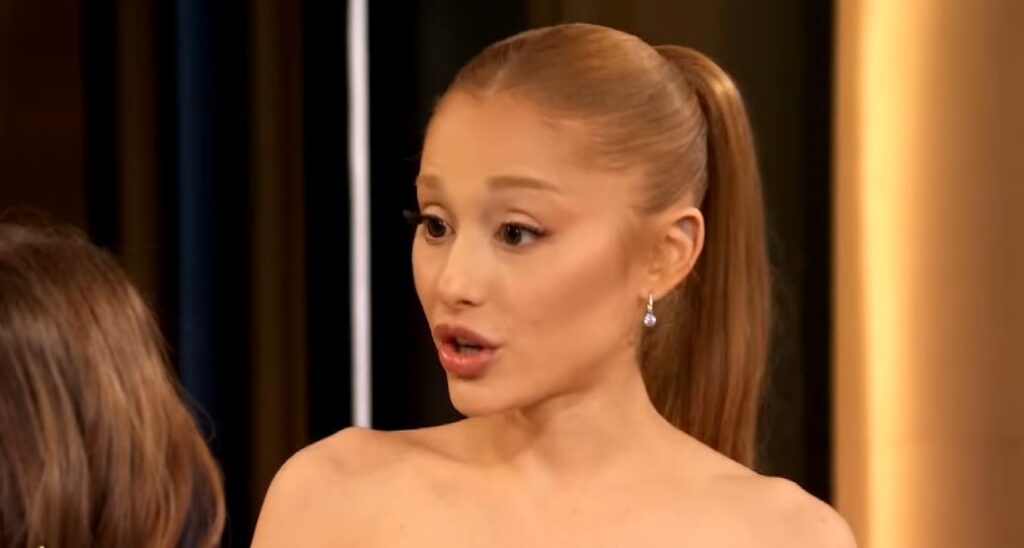The split between Ariana Grande and Mac Miller was as lovely as a slow sunset, but it was also marked by unmistakable sadness. Once radiant and incredibly uplifting, their love started to face darkness that neither love nor imagination could overcome. In her later reflections, Ariana, who looked remarkably vulnerable, acknowledged that the relationship had turned “toxic,” slowly destroying the happiness that had once characterized their relationship.
Initially fueled by teamwork and youthful enthusiasm, their relationship was ultimately burdened by Mac’s continuous struggle with substance abuse. Ariana openly admitted that, despite her especially sincere efforts to encourage his sobriety, being his “glue” left her feeling worn out, noticeably diminished, and painfully aware that she could not save someone who was determined to fight alone.
| Category | Details |
|---|---|
| Full Name | Ariana Grande-Butera |
| Birth Date | June 26, 1993 |
| Profession | Singer, Actress, Songwriter |
| Known For | Thank U, Next; Positions; Victorious |
| Relationship Timeline | Mac Miller (2016–2018) |
| Reference Source | Wikipedia – Ariana Grande |
Throughout their almost two-year romance, Grande was incredibly patient and subtly urged Mac to make better decisions. But as the days turned into months, the once-musical and humorous relationship grew more and more tense and depressing. Friends of the couple pointed out that Ariana was doing more than just helping Mac; she was, by necessity, supporting the whole structure of their lives together, which proved to be an especially heavy burden.
She was incredibly strong and concealed a lot of the hardship behind smiling photos and stage lights, but the cracks were already visible. Ariana used a particularly potent analogy when she spoke out following their split: she had become “less and less sticky,” unable to keep the relationship together as the pieces gradually, unavoidably, floated away.

At first, fans found it difficult to comprehend the breakup, particularly considering the smooth chemistry demonstrated in their joint songs like “The Way” and “My Favorite Part.” But when considering emotional health, Ariana’s choice stood out as remarkably courageous—a refusal to lose herself in the process of saving another person.
Following their split, Mac Miller’s problems tragically worsened, leading to his untimely death a few months later. Even though the ensuing grief was incredibly public, Ariana’s reaction was still very private. She paid a heartfelt homage to Mac, describing him as “the kindest, sweetest soul with demons he never deserved,” thereby recognizing the difficulty of loving someone who is fighting unseen battles.
Ariana sparked a larger, especially significant conversation about addiction, mental health, and the emotional work that frequently goes unnoticed by sharing her story in an honest but polite manner. Her decision to honor Mac’s spirit while facing difficult realities rather than demonize him after the breakup was especially helpful in changing how society views love, grief, and healing.
Ariana has made significant contributions to mental health awareness by strategically using her platform to promote compassion over blame and stress the importance of appropriate support networks. Many people have been moved to reconsider what it means to love sensibly and leave with courage by her transformation from a pop princess navigating heartbreak to a remarkably articulate advocate for self-worth.
Her music has been remarkably honest in capturing these emotional subtleties in recent years. The song “Thank U, Next,” which turned into an anthem for personal development, honors Mac in a subtle way without romanticizing the suffering they went through. Combining pop culture with therapeutic messaging was a particularly creative move that inspired millions of people to view breakups as chances for personal growth rather than failures.
Ariana has successfully turned personal grief into a remarkably powerful catalyst for social change by incorporating such real-life struggles into her art. Songs that used to sound like love letters now have deeper meanings and strike a deep chord with listeners who recognize parts of their own experiences in her lyrics.
She has contributed to de-stigmatizing discussions about addiction and emotional survival by using these sincere expressions, fostering environments where recovery feels feasible rather than stigmatized. Amazingly adaptable in her advocacy, Ariana consistently turns her personal story into a call for empathy by using her celebrity not only to entertain but also to educate.
It is glaringly obvious when considering their split that Ariana and Mac were both negotiating forces greater than themselves. Even though their love was very genuine, it was unable to counteract the especially harmful habits that addiction frequently fosters. In the end, Ariana’s choice to put her health first was a significant act of emotional maturity and self-respect rather than a rejection of love.
Their story will surely be remembered in the years to come for its incredibly human lessons as well as its tragic conclusion. The relationship between Ariana Grande and Mac Miller is a complex picture that is both tender and tumultuous, upbeat and unbearably heavy. It serves as a reminder to everyone who watched that sometimes, loving someone deeply also means knowing when to let go.
